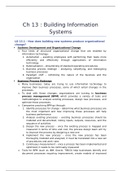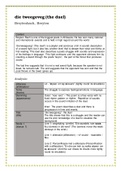Very often, entrepreneurs are so passionate about the idea that they believe its merits will be self-
evident to prospective customers—that the innovation is so obviously superior it will sell itself.
Entrepreneurs who avoid that delusion may think of their initial sales as a chicken-and-egg problem:
They realize that getting buy-in from potential customers is a top priority, but until they design and
build the product, how could they possibly make a sales call? Both attitudes fail to recognize a simple
fact: Salesmanship is central to the success of any young company, and entrepreneurs ignore this
at their peril.
Five Pitfalls:
1. Starting Late: More than half our interviewees fully developed their products before getting
feedback from potential buyers. You’ll learn more from talking to five customers than you will
from hours of market research.
2. Failing to Listen: Even founders who started selling early said they were too focused on
convincing prospects of the new product’s merits and not concerned enough with finding out
what prospects thought of the idea. Listen to the feedback from the customers and reshape
your idea and your product to fit what they actually want.
3. Offering discounts: Faced with pressure (from themselves or their VCs) to make early sales,
many founders offered price discounts in order to close initial deals—often establishing
unsustainable pricing precedents with those customers.
4. Selling to friends and family: You never know why relatives are buying from you—often
their motivation is love, pity, or a sense of obligation, not compelling product quality. In
retrospect, founders believed those sales created a false sense of validation and that they
would have been better off pursuing arm’s-length transactions with customers who would
have given them candid feedback.
5. Failing to seek strategic buyers: Can this customer open new doors or provide referrals?
Can the customer supply usage data that could make my value proposition more compelling?
Five categories of objections, most of which are different from those faced by salespeople in
established firms:
1. Efficacy: Potential customers were consistently skeptical about the ability of new products to
deliver on their value propositions. In those cases, offering samples or free trials often proved
effective.
2. Credibility: Prospects also expressed doubt about a new company on the basis of the
founder’s age, gender, personal background, or experience level. Founders with relevant
experience highlighted that; those who lacked it touted partners or board members with solid
industry reputations.
3. Size: How do you make the prospect comfortable with the fact that your company is small?”
There is no easy answer. Many founders highlighted a key benefit of their company’s size: the
fact that customers were dealing with the CEO instead of a sales rep.
4. Price: several prospects stated directly that they expected significant price cuts for becoming
early users. Some entrepreneurs walked away from those deals, some gave discounts, and
others pushed back. For entrepreneurs who believed their prices were fair, a price objection
could indicate that they were failing to adequately describe the offering.
5. Switching costs: To adopt a new product or service, prospects might need to modify their
routines, procedures, systems, or internal or external relationships. Making such modifications
to switch to a new, untested offering can seem especially costly, but buyers do not always
verbalize these concerns. To address tacit objections about switching costs, the entrepreneurs
we interviewed took it upon themselves to ask questions that would lead prospects to talk
freely.
1
,A Sales Framework for Start-Ups
2
, A Sales Framework for Start-Ups
It calls for engagement with prospects as soon as an idea is conceived—and long before the product is
actually created. The goal of these meetings is to obtain market intelligence not only about product
design but also about promotion, distribution, and pricing strategies. After a round of these meetings,
an entrepreneur should ask if the idea really has strong and broad appeal. The answer to that question
should determine whether the entrepreneur jettisons the idea, returns to the drawing board, or proceeds
to develop a prototype, obtain conditional commitments from prospects, generate more leads, and
engage in other traditional sales activities.
Start-ups face many challenges, and entrepreneurs must wear many hats during the process of
launching a company. It is no surprise that they often postpone selling (or otherwise engaging with
customers) until they’ve already created and begun producing their offerings. Our research
demonstrates, however, that early customer feedback is essential and that founders who fail to consult
with customers soon after the lightbulb moment will ultimately come to regret it.










